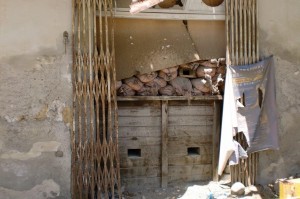Augure is an amazing movie that does not look like any other movie. Augure shows a life full of rituals, magical realism, love and violence in the collectivist society of Congo. And it succeeds to bring in the individual perspective and choices.

I read several reviews after seeing the movie Augure, directed by former rapper Baloji. Reviewers clearly struggle to comment on a movie that does not play by their – western – rules.
* ‘the beautiful-looking vignettes sometimes don’t quite merge into one coherent story with one clear message’ (Filmtotaal)
* ‘a ragged, open, unfinished character’ (Filmkrant)
* ‘Baloji’s full-length debut floats gently around in a wonderful bath of magical realism, but we were not really overwhelmed by emotions’. (De Morgen)
I disagree with the reviewers and found Augure really something else. An innovative movie with a strong message: a major contribution to the world of movies. The suspense was quite heavy for me from the first minutes. I really did wonder what would follow and if I could hold it to the end of the movie. Augure starts with scenes that other movies end with. Luckily, I stayed.
The scenery and images are spectacular. As the reviewers did remark, colours, costumes, music, landscape, fairy tale, art and tradition, all of that is part of the story. A Belgian Congolese returns to his homeland to see if he can connect with his family and introduce his Belgian wife. ‘He told me it would be different’, she said, ‘but I did not understand how different’. Her strong point is that she looses grip from the very beginning of her arrival in Congo and lives with it. Her openness gives her connections.
Scenery in Congo is not just beautiful. There are many cruel aspects, violence, murder, rape and different kinds of exclusion: a more than average terrible phenomenon in a collectivist society. What the reviewers see as ‘ragged’ and not ‘coherent’, are the different perspectives of protagonists. They have to relate to the positive and negative aspects of that vibrant society and they do make their choices. Following their steps is very interesting. Sometimes these steps have many observers (the list of figurants in this movie is long). They are silently watching and give way to the individual path. It accentuates the meaning of individual expression within collectivism. The reviewer above who was not ‘really overwhelmed with emotions’ must have missed the possibility to relate to the protagonists’s soul.
After an intrusive and alienating start of the movie, seeing through the daily jungle of events becomes more and more clear. The viewer is left with the question how he himself lives now, and how he himself would live in the magical and hard reality of Congo. Go watch Augure if you dare to and if you feel ready to let go.
You may also like:
The movie ‘Un divan à Tunis‘
The movie ‘Shoplifters‘

 Bilqiss is about regrets and hope for the chance to be the one you should have been. Living in a burqa is more than just having some inconvenient clothing; it is the expression of a patriarchal society where women live within the boundaries men grant them. Individual men have the right to totally suffocate the women they live with. You might be bored when I write it like this but reading Bilqiss will not bore you.
Bilqiss is about regrets and hope for the chance to be the one you should have been. Living in a burqa is more than just having some inconvenient clothing; it is the expression of a patriarchal society where women live within the boundaries men grant them. Individual men have the right to totally suffocate the women they live with. You might be bored when I write it like this but reading Bilqiss will not bore you.

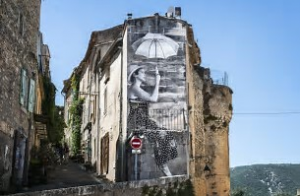
 the only inhabitant left in mine workers houses, almost forgotten by the world, becomes a monument of resistance; and so on. What is absolutely unique about this road movie that could also be called a road documentary, is the normality shown in its full brilliance. It shows that normality can be infinitely more interesting and great than the special.
the only inhabitant left in mine workers houses, almost forgotten by the world, becomes a monument of resistance; and so on. What is absolutely unique about this road movie that could also be called a road documentary, is the normality shown in its full brilliance. It shows that normality can be infinitely more interesting and great than the special. From a vivid wheelchair run through Musée du Louvre in Paris to sharing sadness and perspectives on life: it forms one breathtaking story for the spectators.
From a vivid wheelchair run through Musée du Louvre in Paris to sharing sadness and perspectives on life: it forms one breathtaking story for the spectators.
 Mijn ontdekkingstocht naar diversiteit & inclusie in Arabische landen gaat verder, ditmaal via diversiteit in Marokko en Tunesië. Na de start in Jordanië (
Mijn ontdekkingstocht naar diversiteit & inclusie in Arabische landen gaat verder, ditmaal via diversiteit in Marokko en Tunesië. Na de start in Jordanië ( In Marokko werd ik daarbij nog verrast door de grote persoonlijke warmte van de deelnemers. Hard werken ging er gemakkelijk samen met positieve emotionaliteit, Een deelneemster gaf me na afloop haar prachtige oorbellen mee, als aandenken namens de hele groep.
In Marokko werd ik daarbij nog verrast door de grote persoonlijke warmte van de deelnemers. Hard werken ging er gemakkelijk samen met positieve emotionaliteit, Een deelneemster gaf me na afloop haar prachtige oorbellen mee, als aandenken namens de hele groep.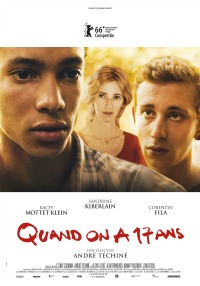

 Banana pancakes and the children of the sticky rice is a great documentary about two guys, or maybe an entire village in Laos in a period of starting tourism. The place is still ‘all natural’ and the first tourists arriving, mainly backpackers from France, Belgium and the Netherlands, are startled by the purity of the place. The village develops in many aspects and the two guys that are particularly followed in this documentary try to improve their life by offering touristic services. The road they go is so interesting!
Banana pancakes and the children of the sticky rice is a great documentary about two guys, or maybe an entire village in Laos in a period of starting tourism. The place is still ‘all natural’ and the first tourists arriving, mainly backpackers from France, Belgium and the Netherlands, are startled by the purity of the place. The village develops in many aspects and the two guys that are particularly followed in this documentary try to improve their life by offering touristic services. The road they go is so interesting! Taxi Teheran
Taxi Teheran


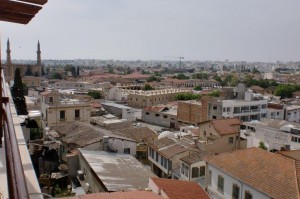
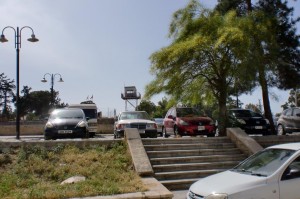 Invisible here, inbetween the two city parts lies the Green Line, a 100 meter large strip where the UN rules since 40 years (!) to separate the Greek Cypriots from the Turkish Cypriots… Easy to understand how bored the UN-soldiers are here, they just ride around in expensive UN-cars as there is nothing else to do. The fighting has stopped long ago and the frontier is even ‘open’ since 2003 at three points at the Green Line Nicosia. Parties make small steps forward that symbolize progress like the abolishment of giving stamps every time a person crosses the transit point; this step was the first result of the new peace negotiations that started 2 weeks ago. It lead to quite some confusion especially at the Turkish side: the protocol had to change but Turkish officials love stamps – clearly that was really a thing to give up for them 🙂 Anyway the international community was investing here at least 30 years in vain, paying for useless UN-presence, boycoting the North / Turkish side without any result. For how long will we continue to do so? And why?
Invisible here, inbetween the two city parts lies the Green Line, a 100 meter large strip where the UN rules since 40 years (!) to separate the Greek Cypriots from the Turkish Cypriots… Easy to understand how bored the UN-soldiers are here, they just ride around in expensive UN-cars as there is nothing else to do. The fighting has stopped long ago and the frontier is even ‘open’ since 2003 at three points at the Green Line Nicosia. Parties make small steps forward that symbolize progress like the abolishment of giving stamps every time a person crosses the transit point; this step was the first result of the new peace negotiations that started 2 weeks ago. It lead to quite some confusion especially at the Turkish side: the protocol had to change but Turkish officials love stamps – clearly that was really a thing to give up for them 🙂 Anyway the international community was investing here at least 30 years in vain, paying for useless UN-presence, boycoting the North / Turkish side without any result. For how long will we continue to do so? And why? i
i cosia could be a beautiful and flourishing city but it is not because it has no heart but a Green Line, a real wall in the middle of it: see the pictures, where we walk on the Greek side with theTurkish Cypriot and Turkish flags on the old city walls, and the walk on the Turkish side limited by a sudden wall to stop us going to the Greek side: no entrance, no photographs allowed either by the way.
cosia could be a beautiful and flourishing city but it is not because it has no heart but a Green Line, a real wall in the middle of it: see the pictures, where we walk on the Greek side with theTurkish Cypriot and Turkish flags on the old city walls, and the walk on the Turkish side limited by a sudden wall to stop us going to the Greek side: no entrance, no photographs allowed either by the way.
